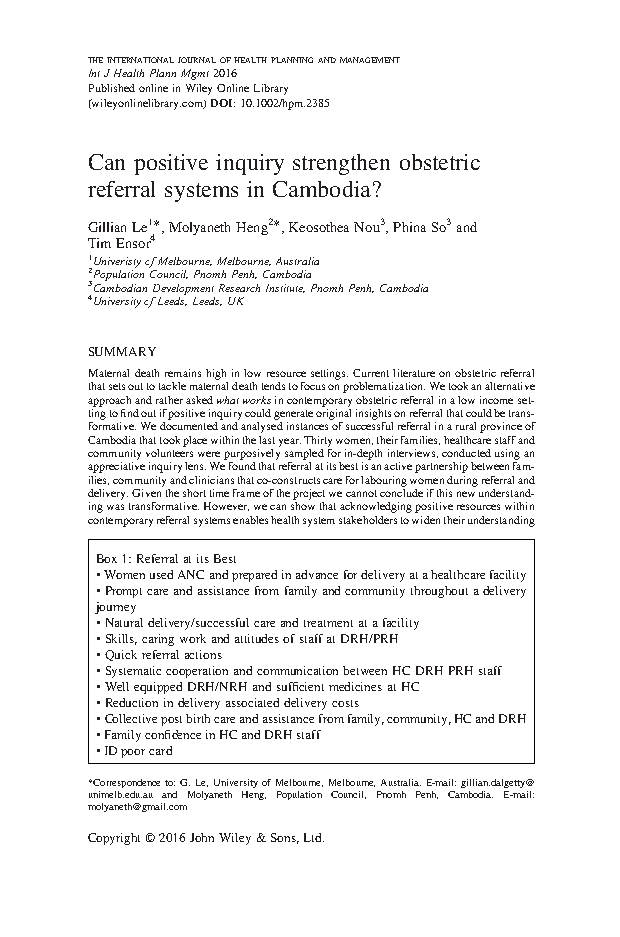Can positive inquiry strengthen obstetric referral systems in Cambodia?
 Le, G., Heng, M., Nou, K., So, P., and Ensor, T. (2016)
Le, G., Heng, M., Nou, K., So, P., and Ensor, T. (2016)
Int J Health Plann Mgmt, doi: 10.1002/hpm.2385.
This paper drew on ReBUILD’s Responsive Fund project Obstetric Referral in the Cambodian Health System – What Works?
This project was conducted by the Nuffield Centre for International Health & Development, University of Leeds and Cambodian Development Research Institute.
The full paper can be accessed here.
Summary:
Maternal death remains high in low resource settings. Current literature on obstetric referral that sets out to tackle maternal death tends to focus on problematization. We took an alternative approach and rather asked what works in contemporary obstetric referral in a low income setting to find out if positive inquiry could generate original insights on referral that could be transformative. We documented and analysed instances of successful referral in a rural province of Cambodia that took place within the last year. Thirty women, their families, healthcare staff and community volunteers were purposively sampled for in-depth interviews, conducted using an appreciative inquiry lens. We found that referral at its best is an active partnership between families, community and clinicians that co-constructs care for labouring women during referral and delivery. Given the short time frame of the project we cannot conclude if this new understanding was transformative. However, we can show that acknowledging positive resources within contemporary referral systems enables health system stakeholders to widen their understanding of the kinds of resources that are available to them to direct and implement constructive change for maternal health.